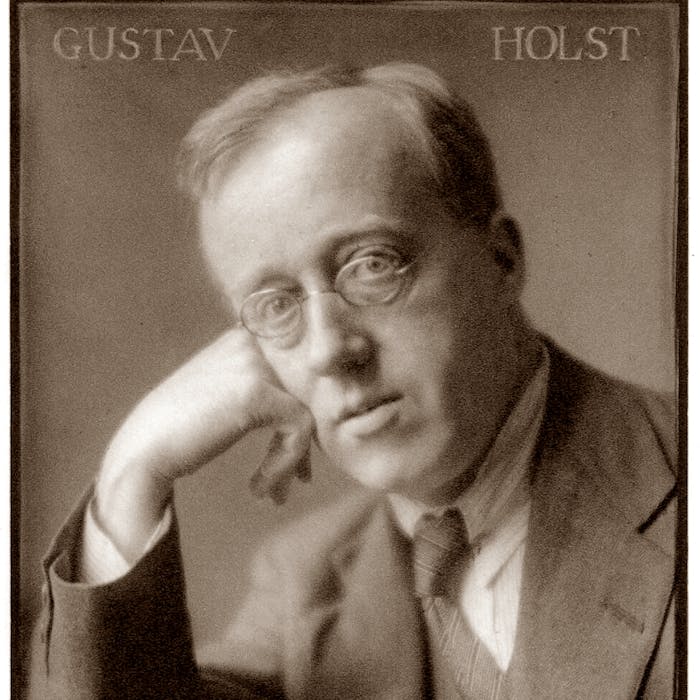
Gustav Holst - the modest English composer of "The Planets"
Gustav Holst was an English composer, arranger and teacher best known for his orchestral suite "The Planets". Amongst his many other works, he also wrote the melody of the Christmas carol "In the Bleak Midwinter".
Gustav Theodore Holst was born in Cheltenham in 1874. His father was a professional musician and was from a musical family. Holst's mother was a talented singer and pianist.
Gustav Holst left school and became an organist, choirmaster and conductor. He had already started composing. In 1893, buoyed by the success of a recently performed composition, Holst applied for a scholarship to the Royal College of Music. He was unsuccessful (Samuel Coleridge-Taylor won the scholarship) but his father borrowed money to pay for his studies.
Straitened finances were to become a feature of Holst's life, despite later success and recognition as a composer, he usually needed to supplement his income with teaching jobs.
Holst's main influences were Mendelssohn, Chopin, Grieg and above all, Sir Arthur Sullivan (who worked with W. S. Gilbert on the famous comic operas). Later, like many musicians of his generation, Holst became an ardent Wagnerite.
Shortly after celebrating his 21st birthday, Holst met Ralph Vaughan Williams, who became a lifelong friend and had a great influence on Holst's music. The two budding composers became one another's chief critics.
Holst married Isobel Harrison, a soprano, in 1901 and they had one child, Imogen, who would go on to have a musical career herself and become the organiser of the Aldeburgh Festival as the musical assistant of Benjamin Britten.
During a holiday in Spain, the writer Clifford Bax – brother of the composer Arnold Bax - introduced Holst to astrology, an interest that inspired his suite The Planets. Holst cast his friends' horoscopes for the rest of his life and referred to astrology as his ‘pet vice’.
The first performance of The Planets was given on 29th September 1918 to an invited audience including Sir Henry Wood and most of the professional musicians in London. Five months later, Sir Adrian Boult introduced The Planets to the general public, at a concert in February 1919.
The international success of The Planets made Holst a well-known figure - much to his dismay. He was a shy man and turned down honours and awards proffered to him, and refused to grant interviews or sign autographs.
Holst died in London on 25th May 1934, at the age of 59, of heart failure following an operation. There is a statue of him in Cheltenham, and his birthplace is now a museum dedicated to the composer.
Further reading
Links to external websites are not maintained by Bite Sized Britain. They are provided to give users access to additional information. Bite Sized Britain is not responsible for the content of these external websites.
